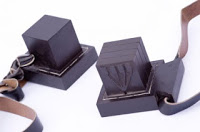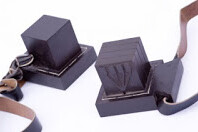Deuteronomy 16:18 states: “…You shall not take a bribe, for bribery blinds the eyes of the wise and perverts just words.”
Although this statement of Jewish law is written in Deuteronomy, the final Book of the Torah, the concept of avoiding bribery is first found in Genesis 14. The patriarch Abraham is drawn into a regional war when his nephew, Lot, was taken captive when a group of Mesopotamian kings seized Sodom. Organizing his compatriots, Abraham and his followers attacked at night and defeated the invaders. When Abraham brought Lot and the rest of the captured citizens of Sodom home, Sodom’s king offered him all of the captured wealth in return for his subjects. Abraham responded: “I have lifted up my hand unto the Lord, God Most High, Maker of heaven and earth, that I will not take a thread nor a shoe-lace nor anything that is yours, lest you should say: I have made Abram [Abraham] rich” (Genesis 14:22-23).
Abraham knew of the King of Sodom’s general lack of concern for others and did not wish to ever be beholden to him. The sage, Rabba, notes the deeper ramifications of Abraham’s refusal to accept even a small token of appreciation: “[Because of this response, Abraham’s] descendants were worthy of receiving two commandments: the thread of blue [tzitzit/tallit katan] and the strap of the phylacteries [tefillin]” (Sotah 17a).
The sage, Rabba, notes the deeper ramifications of Abraham’s refusal to accept even a small token of appreciation: “[Because of this response, Abraham’s] descendants were worthy of receiving two commandments: the thread of blue [tzitzit/tallit katan] and the strap of the phylacteries [tefillin]” (Sotah 17a).
What is the connection between rejecting bribery and the mitzvot of tzitzit and tefillin? The answer can be summed up in Abraham’s response: “Lest you should say, I have made Abram rich.” Tefillin, which are worn on one’s forehead and forearm, and tzitzit, which are attached to one’s clothing, are both mitzvot that are meant to be constant reminders of God’s omnipotence and of the fact that one should strive never to be beholden unto anyone except God.
This Treat was last posted on October 25, 2012.
Copyright © 2019 NJOP. All rights reserved.
If you like what you’ve read here, signup to get notifications about new treats.
Related Posts
No Strings Attached
Deuteronomy 16:18 states: "...You shall not take a bribe, for bribery blinds the eyes…
0 Comments2 Minutes
Strings of Red
Do an online search for the terms “red string” and “Judaism” and you will find a…
0 Comments2 Minutes
 Print This Page
Print This Page